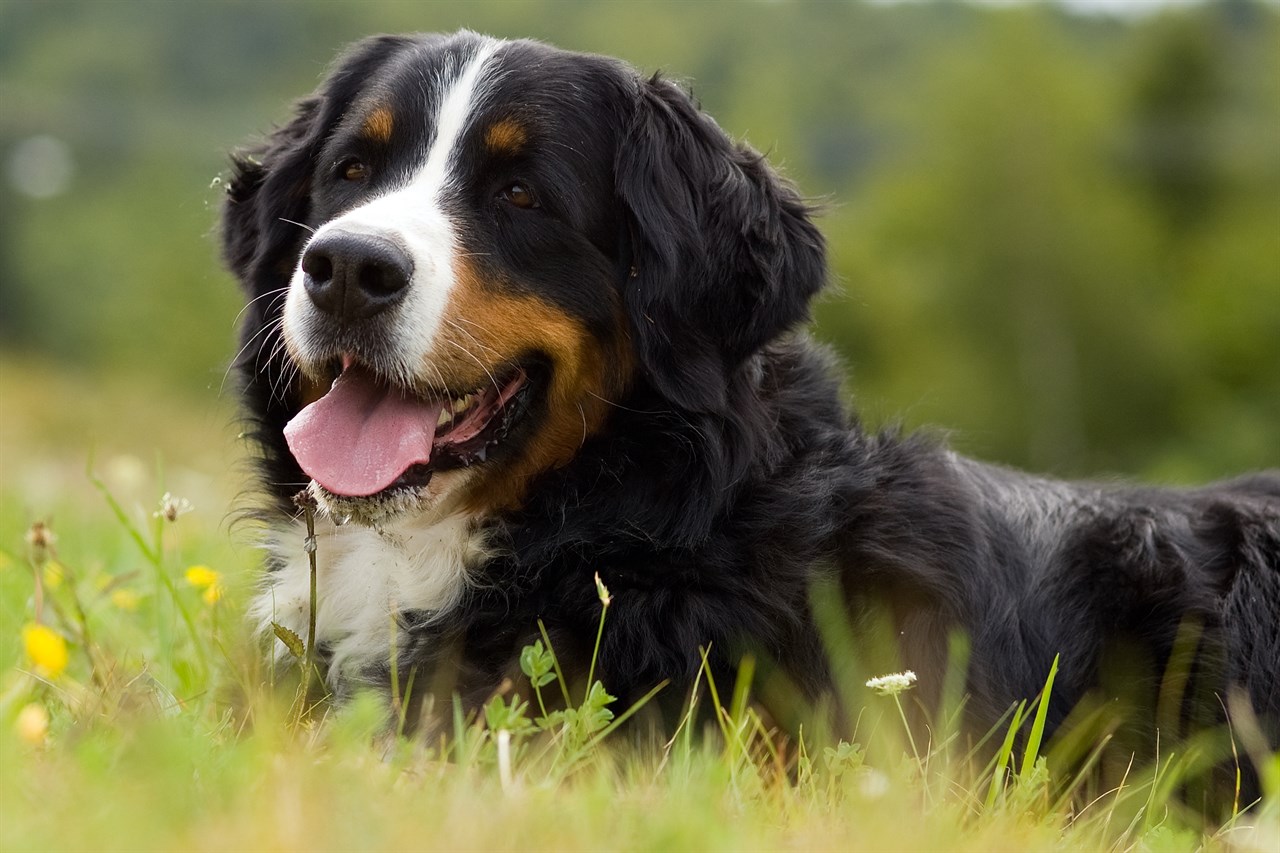Feeding Habits and Food Requirements of the Bernese Mountain Dog

Feeding your Bernese Mountain Dog a balanced and nutritious diet is essential to their overall health and well-being. Proper feeding habits and understanding their dietary needs are crucial for maintaining their ideal weight, preventing health issues, and ensuring they thrive. Here's a comprehensive guide to the feeding habits and food requirements of the Bernese Mountain Dog:
Age-Appropriate Nutrition
- Puppy Stage: During the puppy stage, which typically lasts until they are around one year old, Bernese Mountain Dogs require a diet specifically formulated for puppies. This food is designed to support their growth and development. Ensure it contains essential nutrients such as protein, calcium, and phosphorus.
- Adult Stage: Once your Berner reaches adulthood, usually at around one year old, transition them to an adult dog food. Look for high-quality commercial dog food labelled as suitable for large breeds. These formulas are typically lower in calories to prevent excessive weight gain.
- Senior Stage: As your Bernese Mountain Dog enters their senior years, which can vary but generally begins around the age of seven, consider transitioning to a senior-specific dog food. These diets are tailored to meet the changing nutritional needs of older dogs.
Portion Control
Follow the recommended feeding guidelines provided on the dog food packaging or as advised by your veterinarian. Portion control is vital to prevent obesity, a common issue in Bernese Mountain Dogs.
Divide their daily food allowance into two or more meals to help prevent bloat (gastric torsion), a condition that large and deep-chested breeds like Berners are prone to.
High-Quality Dog Food
Choose high-quality commercial dog food that lists meat, poultry, or fish as the first ingredient. Avoid foods with fillers like corn, wheat, or soy, which offer limited nutritional value.
Some owners opt for grain-free diets, but consult with a veterinarian before making this choice, as there has been some debate about potential health risks associated with grain-free diets.
Avoid Overfeeding
Bernese Mountain Dogs have a hearty appetite, but overfeeding can lead to obesity, which can exacerbate certain health issues, including joint problems. Stick to the recommended portion sizes and monitor their weight regularly.
Fresh Water
Always provide your Bernese Mountain Dog with access to fresh, clean water. Hydration is vital for overall health.
Special Dietary Needs
Some Bernese Mountain Dogs may have food allergies or sensitivities. If you notice signs of digestive upset, skin issues, or allergies, consult with a veterinarian to explore potential dietary adjustments.
Supplements
Consult with your veterinarian before adding any supplements to your Berner's diet. In most cases, a well-balanced commercial dog food should provide all the necessary nutrients.
Weight Management
Pay attention to your Bernese Mountain Dog's weight. Obesity can lead to numerous health problems, including joint issues, heart disease, and diabetes. If your Berner is overweight, work with your veterinarian to develop a weight management plan.
Treats and Snacks
Be mindful of treats and snacks, as excessive treats can contribute to weight gain. Choose healthy, low-calorie treats, and use them in moderation during training and as occasional rewards.
Veterinary Guidance
Regular veterinary check-ups are essential to monitor your Berner's overall health and nutritional needs. Consult with your veterinarian if you have questions or concerns about their diet.
In conclusion, providing your Bernese Mountain Dog with a balanced and nutritious diet tailored to their life stage is essential for their health and longevity. Remember to practise portion control, monitor their weight, and seek veterinary guidance when necessary to ensure they receive the best possible nutrition for their specific needs.
Bernese Mountain Dog puppies for sale
- Find Bernese Mountain Dog puppies for sale in ACT
- Find Bernese Mountain Dog puppies for sale in NSW
- Find Bernese Mountain Dog puppies for sale in NT
- Find Bernese Mountain Dog puppies for sale in QLD
- Find Bernese Mountain Dog puppies for sale in SA
- Find Bernese Mountain Dog puppies for sale in TAS
- Find Bernese Mountain Dog puppies for sale in VIC
- Find Bernese Mountain Dog puppies for sale in WA